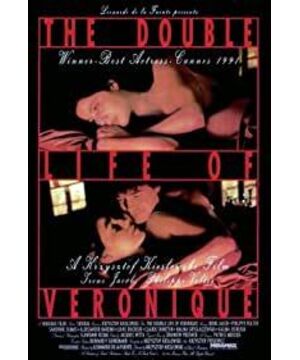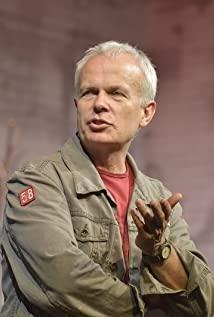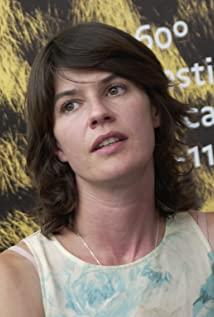by Liu Xiaofeng
Although Viorica and Sabina both have their own body shadows lying beside them, they feel different about sleeping with their own body shadows. In short, Viorica has a physical sadness that Sabina does not. Sabina has an Epicurean wise attitude towards the shadow of the body sleeping beside her: admonishing her individual soul not to ask the body to seek what it lacks. Epicurus said, "The animal does not need to seek what is lacking", so the animal has no sorrow and distress. The body does not seek what it lacks, the individual soul lets the body seek what it seeks - because the soul cannot seek anything without the body. For example, the body feels that it does not feel its own death, and the soul seeks immortality, so that the body feels that its own death is a kind of sadness. Epicurus saw it very clearly, "When the soul leaves the body, the body no longer feels. Because the body never has this ability in itself, but often provides an opportunity for this ability to another being (the soul). . . . ". The body is compelled by the soul to seek what it lacks. The troubles of the body are caused by the turmoil of the soul, which makes the body restless, living "full of thirst for life, with mouth open in distress", this is really a morbidity. Living conditions. Therefore, let the individual soul not be united with the body, let it be quiet and not agitated by itself, so that the body will not be burdened with tasks that it cannot bear. That way, death won't disturb the body's senses, sex won't become love, and it can happen with anyone. If Epicurus, in order to quiet the body, took the approach of making people learn to debody the soul, then Sabina differs from Epicurus only in that the shadow of the body is not tied to heaven, and the individual is The soul roams with the body. All the indiscriminate longings of the individual soul are due to the fact that it sees itself as a shadow of heaven. An individual soul tied to heaven is a kitsch soul—sad for death, moved by good things.
Viorica in Krakow died, and Viorica in Paris became especially sensitive and sad. Her soul can't be quiet, can't not be agitated, this is the melancholy of her own body and soul. The sense of death for Viorica is such a feeling: she felt in a trance that she had died while singing, and felt that there were some emotions related to the thin lines of her life that would make her lose self-control. The feeling of death is not an illusion that can be driven away by wisdom, but a kind of life feeling of the individual soul to his own body - the thin thread that binds his own body to his own individual soul will come from nowhere. The feeling of a gust of wind blowing off. Viorica couldn't get rid of this inexplicable feeling of death, and could only live in the feeling that she was dead.
Viorika knew that her body was so thin, why did she choose singing as her career? Now this question can be answered. Simply put, this is purely due to individual temperament: it was not Viorica that chose to sing, but the passion for singing that chose Viorica. Viorica's individual temperament was not chosen by herself, just like Viorica's individual soul was not chosen by herself, but a thin thread that was thrown from heaven and tied to her body, making her body involuntary . That thread from heaven made her body feel absolutely her own (embodied), determining what her body liked. It is impossible for Viorica to find a passion for life herself, she can only find her passion for life in herself, which is equivalent to discovering the thin thread that ties her body to her shadow. The thin line thrown from the heaven determines the life direction of Viorica's body and the burden of the life of the individual soul, feeling her own individual destiny. The so-called individual destiny is nothing but a person who feels that only with such a passion for life can one feel that he has lived a good life and that his body is happy in this world, so that it is absolutely necessary to live in this way. The individual soul tied to its own paradise weighs on the body, because it requires it to live that way. Sabina did not think at all that there was a heaven of her own body, and she was spared the suffering of individual destiny that was so necessary.
Viorica felt the same way that Tereza felt about the thin thread of life she had about her life, and they were women like Arete. Tereza's sense of the thin line of her life is that in heaven people are not people. More precisely, man has not yet been cast on the path of man. Now, I have been thrown out for a long time, flying in a straight line through the void of time. In some deep place, there is still a thin rope tied to me, and the other end is connected to the heaven surrounded by clouds and fog in the distance. (Kundera, "The Unbearable Lightness of Life", p. 314) The so-called "path of man" is the life experienced in one's own body. Since my body cannot be replaced, my relationship with heaven cannot be changed. of. This is my imperative life, my personal mission. For Viorica, singing is her personal mission, to express the turbulence of the thin line in her life. If she can't sing, her life has no meaning. Without singing, her life is just a breath of cold air, not Warm breath. Therefore, Viorica had to sing regardless of her body's carrying capacity.
The thin thread in the individual life is woven by the encounter between the individual soul of "my" and the body of "my", and this encounter allowed Viorica to see her own paradise. Her individual passions come not from the natural desires of the body, but from the individual soul's vision of its own paradise. The individual passion for seeing her own paradise made Viorica's body pierce the naturalness of her physical life and realize her own body's inadequacy. But the individual soul has become the shadow of the body. The thin thread wrapped around the body makes the body aware of its own heaviness, so that the body can see its own death, realize its own disposableness, and realize the disposableness of its passion for life.
The individual soul's awareness of what the body lacks is the consciousness of sin. Sin makes one feel death in life, and guilt is tantamount to the soul bringing death to the body. The "sin" here is not only the natural and accidental lack of the body, but also the "final meaning" of the dead body of the lacking body, awakening to "death" is the root that binds the body to the shadow of the body The break of the thin line thrown by the heavens. Zhuangzi knew that death and life are one ("The Great Master") and traveled to the end and beginning of all things ("Dasheng"), and he also saw the lack of the body. But he felt that the lack of the body is natural, and there is no need to feel the lack of the individual body. The body should be cycled in the natural maximization. In this cycle, the lack of the body is no longer lack of lack. The body becomes insubstantial simply because there is a supernatural world heaven. Knowing death and life as one is to cut off the thin thread that binds the individual soul to the individual body. Life cannot be contemplating death, and death cannot be contemplating life, then there will be no longer the sorrow of life, and there will be no sense of sin. The focus of the consciousness of sin lies in the lack of awareness of the body: the lack of the body is not natural (Zhuangzi would say, on the contrary, the lack of the body is nature), it lies in the lack of the individual soul towards the body (the lack of the body cannot bear the burden of the soul). longing) sorrow. Paul said, "He who has the Holy Spirit groans in his heart..." (Paul, Romans, 8, 23). This actually means that only those who have the Holy Spirit will groan in their hearts, become mourners, and open their mouths with thirst and anguish.
After Viorica learned from the doctor that her body was not suitable for singing, the lack of her own body turned into a existential sadness. This sadness comes from the sigh of his body and soul. He regrets that his body may have become cold before his individual enthusiasm is distributed. Individual enthusiasm can only radiate in this body, and this body is naturally and occasionally deficient. Why must it be sad? It is because of the thin thread of the body that one end is tied to the sense of death of the body, and the other end is tied to the heaven of the individual soul.
The mediating form of individual passion varies from person to person, but the game form that becomes a person's individual passion must be the form that can hold the shadow of the person's body together with the body. This form of play itself becomes the thread of the individual passion of the person. Unable to live in this form of play that belongs to oneself, the person will feel that the thin thread in his life is broken. Viorica likes "Song to Heaven" so much because it is a lamentation, and she feels that this song is the trembling of the thin thread in her life, the form of consolation in my life without me.
Lamentations are grievances that I can't help feeling in the end. The real lamentations are sung by the self-conscious body. The shape of the Chinese word "owing" is a person striving to stand up and raise his head to sing (refer to "owing" and "ying" in "Shuowen Jiezi": "Yong also, never owe"). The lamentation is the consciousness itself of the individual soul's ignorance of the body. It is the regret of the body's shadow when it sees the death of its own body, and the sadness that cannot be relieved. It is the shadow of the body (body soul) who sees death. The sadness that surrounds his body.
...
Singing lamentations has become Viorica's passion for life, her individual soul bears the death of her own body through singing, and only by her own singing - not by the Leviathan like before. Soul - to bear the guilt of one's own body.
View more about The Double Life of Véronique reviews











